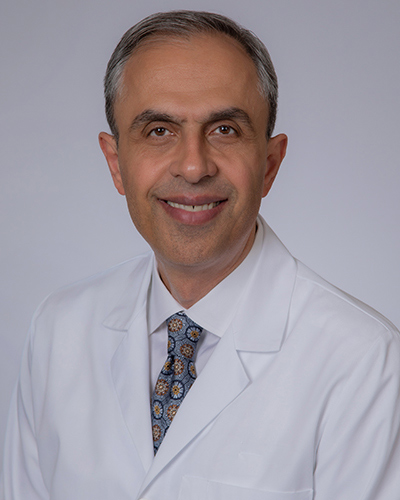What Is Neurosurgery?


One of the most common misconceptions about neurosurgery is that it’s only concerned with treating brain tumors and that its recovery period is always long and challenging.
However, the truth is that neurosurgery is a diverse field treating various conditions and encompassing a range of procedures. With advances in technology and surgical techniques, it also continues to grow by the day, offering patients minimally invasive options and shorter recovery times.
If you have been recommended for neurosurgery or simply want to know more about this treatment option, this article is for you. In the following sections, we define neurosurgery, explore the common conditions it can treat, and offer advice on moving forward with your neurosurgical care.
What Is Neurosurgery?
Neurosurgery is often alternatively referred to as brain surgery, but this does not mean the field focuses on treating disorders of the brain. Instead, it encompasses the surgery of the nervous system and concerns both the brain and the spinal cord. It involves diagnosing and treating injuries to or diseases of the brain, spinal cord and column, and the peripheral nerves throughout the body.
As such, physicians specializing in neurosurgery are not only brain surgeons. They have also been trained to treat various conditions, such as chronic back and neck pain, scoliosis, and sports-related neck injury.
What Kind of Training Do Neurosurgeons Have?
Neurosurgery is a highly specialized field, so neurosurgeons must undergo extensive training to become experts.
After finishing medical school, neurosurgeons complete a residency program lasting seven years. During this time, they gain hands-on experience in diagnosing and treating various neurological conditions, as well as performing complex surgical procedures. Some neurosurgeons then choose to pursue further specialization in a particular domain of neurosurgery, such as pediatric neurosurgery or neuro-oncology.
Why should you have your surgery with Dr. Cohen?
Dr. Cohen
- 7,500+ specialized surgeries performed by your chosen surgeon
- More personalized care
- Extensive experience = higher success rate and quicker recovery times
Major Health Centers
- No control over choosing the surgeon caring for you
- One-size-fits-all care
- Less specialization
For more reasons, please click here.
What Kinds of Surgeries Do Neurosurgeons Perform?
As established earlier, the specialty of a neurosurgeon is not limited to treating brain injuries and disorders. Here are the different domains of neurosurgery and the various surgeries neurosurgeons can perform to treat nervous system-related conditions.
- General Neurosurgery: This subspecialization involves treating a wide range of neurosurgical disorders, including brain and spine tumors, traumatic injuries, vascular conditions, and congenital abnormalities.
- Vascular Neurosurgery: Vascular neurosurgeons use open and minimally invasive techniques to treat complex conditions, such as strokes, aneurysms, arteriovenous malformations, and certain types of brain tumors.
- Neurosurgical Oncology: Neurosurgeons who completed a fellowship in neurosurgical oncology specialize in the surgical treatment of gliomas, meningiomas, acoustic neuromas, and other tumors affecting the nervous system.
- Spinal Neurosurgery: This field involves performing surgery on the bony spine and spinal cord to correct degenerative spine conditions, remove spinal cord tumors, treat spinal infections, and repair congenital spinal deformities.
- Functional Neurosurgery: Physicians specializing in functional neurosurgery treat movement-related disorders interrupting a person’s daily function. They do this through less-invasive treatments, such as deep brain and nerve stimulation.
- Pediatric Neurosurgery: Pediatric neurosurgeons specialize in treating nervous system problems and head and spinal deformities in children.
- Peripheral Nerve Neurosurgery: This subspecialization treats peripheral nerve disorders like acute nerve injuries to restore function and minimize pain through surgical treatment and rehabilitation.
Besides these branches of neurosurgery, it also helps to understand the common surgical procedures that can be used when treating problems with the nervous system. These include:
- Craniotomy: This is a neurosurgical procedure where part of the skull is temporarily removed/opened to perform an operation, such as when treating brain tumors, aneurysms, and hematomas.
- Ventricular-Peritoneal (VP) Shunt: A VP shunt is a small plastic tube inserted into the brain to drain excess cerebrospinal fluid from the brain into the abdomen and restore its normal flow.
- Minimally Invasive Spine Surgery (MISS): Unlike open surgeries that use long incisions, MISS involves making smaller incisions and using a device called a tubular retractor to perform the surgery. As such, it brings benefits such as less pain after the surgery and less muscle and soft tissue damage.
What Is Neurosurgery Used For?
Neurosurgery treats nervous system-related problems and manages conditions that affect the function of the brain and the spinal cord.
Treating the Spine (Tumors and Sciatica)
Abnormal growth in or around the spine can be removed via neurosurgery. Nerve-related problems such as sciatica (disk herniation) can also be addressed through minimally invasive options, such as spinal decompression.
Treating Brain Tumors
Metastatic brain tumors are aggressive brain tumors that begin in another part of the body and spread to the brain. This condition can be addressed with different treatment options, including chemotherapy, radiosurgery, and/or surgery.
Meanwhile, meningiomas are brain tumors which arise from the membranes surrounding the brain and spinal cord, called the meninges. Most meningiomas are benign.
Treating Brain Trauma
Neurosurgery can also be used to treat traumatic brain injury. It can remove blood clots (contusions) in the brain, repair skull fractures, and relieve intracranial pressure to reduce the physical, emotional, and cognitive problems that can arise from the TBI.
Other Conditions That Can Be Treated via Neurosurgery:
- Stroke
- Seizures and epilepsy
- Head, neck, and spine injuries
- Cervical spine disorders
- Vertebral fractures
- Lumbar spinal stenosis
- Herniated disc
Moving Forward With Neurosurgery
If you have a neurological condition that would benefit from surgical intervention, your primary care physician will refer you to a neurosurgeon. As experts in the field, they order tests and scans to diagnose your condition and determine the best treatment option for you. This could be a non-surgical or surgical treatment or a combination of both.
On that note, know that you can also seek a second opinion. Deciding to move forward with neurosurgery is a significant decision to make, so asking other surgeons for a second and even third opinion is invaluable. Doing this allows you to compare your treatment options and find one that will best support you and your healthcare goals.
Make Better Health Decisions and Gain Confidence in Your Choices
When making important decisions regarding your care, take the initiative to do your research and read up on what neurosurgery is. However, remember that seeking opinions from multiple doctors is still preferable. They are reliable sources of information that can point you toward the treatment plan that’s right for your medical needs.
Let our experienced team led by neurosurgeon Dr. Cohen-Gadol help you move forward in your treatment plan with confidence. Fill out this form to request a second opinion today.











